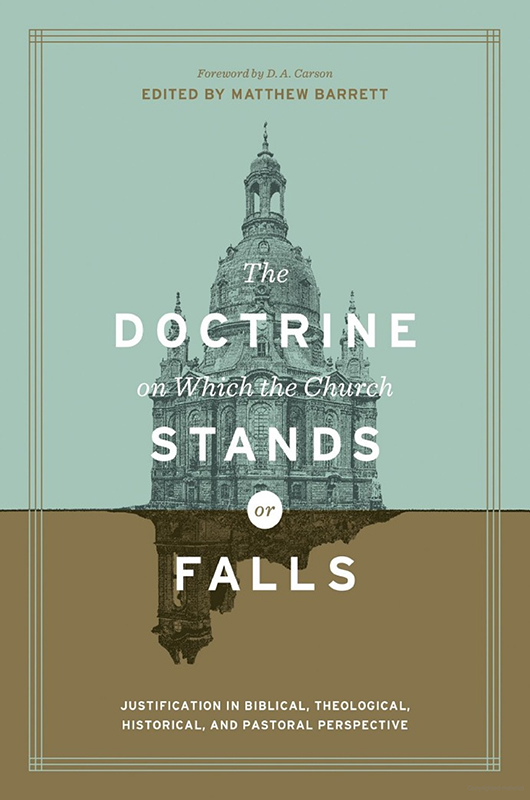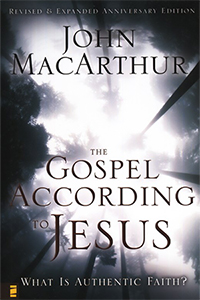In Matthew Barrett’s book, The Doctrine on Which the Church Stands or Falls, contributing author Andrew Naselli makes a stratospherically important point about the centrality of Paul’s theology on justification. He calls attention to Luther’s notes about the matter.1 Luther wrote of Romans 3:21-26 as follows, “the chief point, and the very central place of the Epistle [to the Romans], and of the whole Bible.” Specifically, Naselli uses Moo’s observations about Martin Luther’s notes on Paul’s passage to the Romans. The passage is critical to our study of justification. The heart of the doctrine is “the righteousness of God that empowers the gospel to mediate salvation to sinful human beings.”2
So as a matter of course, this section of Romans 3:21-26 must be carefully parsed. To ruminate on it and let it saturate every part of our capacity to reason and accept truth.
Romans 3:21-26 Justification by Faith
21 But now apart from the Law the righteousness of God has been manifested, being witnessed by the Law and the Prophets, 22even the righteousness of God through faith in Jesus Christ 23 for all those who believe; for there is no distinction; for all have sinned and fall short of the glory of God, 24 being justified as a gift by His grace through the redemption which is in Christ Jesus; 25 whom God displayed publicly as a propitiation in His blood through faith. This was to demonstrate His righteousness, because in the forbearance of God He passed over the sins previously committed; 26 for the demonstration, I say, of His righteousness at the present time, so that He would be just and the justifier of the one who has faith in Jesus.
Parsed Outline (Naselli, 221-222)
- God’s righteousness is revealed from the OT law and the prophets. (Rom 3:21)
- All have sinned yet have access to God’s righteousness through exclusive faith in Christ. (Rom 3:22-23)
- Source of justification made clear through faith in Christ received as a free gift to people redeemed by His blood to satisfy God’s justice and wrath (propitiation). “In-Christ-redemption is the instrument of grace to bring about justification.… Justification occurs through in-Christ-redemption, which is the instrument of grace.”3 (Rom 3:24-25a)
- Integrity of God plus his character as righteous and just to hold back His anger to appease righteous divine wrath against sin. The just and justifier gives righteous status to people as He passed over sins committed and atoned for through the blood of Christ. So here it is revealed the gospel is an expression of God’s attributes of righteousness and justice. (Rom 3:25b-26)
Just as Luther, Moo, and many other expositors have made super clear, Naselli offers the four-point review above of what Morris called the most important single paragraph ever written.”4
The polemic to a proper understanding and acceptance of the doctrine of justification rests upon a new covenant biblical principle of soteriological meaning.
The New Perspective on Paul (NPP) is an effort to redefine justification as made clear by the apostle Paul (Rom 3:21-26). Not so much to affect what justification does in terms of its salvific merit but to redirect it toward the interests of cultural Marxism and liberation theology. In the form of Sanders’ covenantal nomism, NPP attempts to necessitate the maintenance of salvation by orienting it toward the cultural well-being of people (a State interest). Justification becomes fundamentally about ecclesiology and not soteriology (Cara, 231). Paul has explicitly and authoritatively informed millions over thousands of years that justification is vertical, not horizontal (Romans 1:17, 3:21-26, 9:30-10:13).
NPP is an effort to detach the meaning and warnings of scripture concerning justification to suit the interests of society, culture, and the State around liberation theology. A theology of grievance concerning the “marginalized” (i.e., feminism, marriage, sex, gender, and abortion activists coupled with ethnic and racial disparities that need attention). That which divides people of truth is diabolical. That which intermingles and draws them to darkness is satanic.
Cultural Marxists who capture and guide woke social justice ideology shape progressive Christians to form various ecclesiological efforts. Marxism pushes toward a revisionist understanding of biblical justification through cultural pressures for reparational and restorative institutional and theological “justice” to acquire its desire for power. To NPP, justification is about social order toward the interests of liberation theology advocates who want unfettered lifestyles and egalitarian insistence contradictory to explicit biblical language about what’s unacceptable and forbidden to profane the Imago Dei.
On April 14th, 2022, Carl R. Trueman posted an article entitled “Rowan Williams and our Sentimental Age.” In this article, Trueman makes it completely clear that the esteemed academic scholar (Williams) has advocated for State mandated LGBT lifestyle acceptance within the church. The current Arch Bishop of Canterbury favors same-sex “marriage.” N.T. Wright, a prominent advocate of NPP, is a bishop of the Anglican church. Many pastors and priests across all denominations advocate for the ghetto of theological exploration to recast doctrine toward social interests. Specifically to render people susceptible or trapped by the false social doctrine of NPP.
________________
1 Andrew David Naselli, “The Righteous God Righteously Righteouses the Unrighteous: Justification according to Romans,” in The Doctrine on Which the Church Stands or Falls: Justification in Biblical, Theological, Historical, and Pastoral Perspective, ed. Matthew Barrett (Wheaton, IL: Crossway, 2019), 220–221. Here Naselli quotes Douglas Moo’s observations in the Luther Bible with Luther’s margin notes (Epistle to the Romans, 1st ed, 281n1).
2 Douglas J. Moo, The Epistle to the Romans, The New International Commentary on the New Testament (Grand Rapids, MI: Wm. B. Eerdmans Publishing Co., 1996), 219.
3 Constantine R. Campbell, Paul and Union with Christ: An Exegetical and Theological Study (Grand Rapids, MI: Zondervan, 2012), 114. Campbell skillfully synthesizes justification and union with Christ; see 388–405.
4 Leon Morris, The Epistle to the Romans, The Pillar New Testament Commentary (Grand Rapids, MI; Leicester, England: W.B. Eerdmans; Inter-Varsity Press, 1988), 173.

















